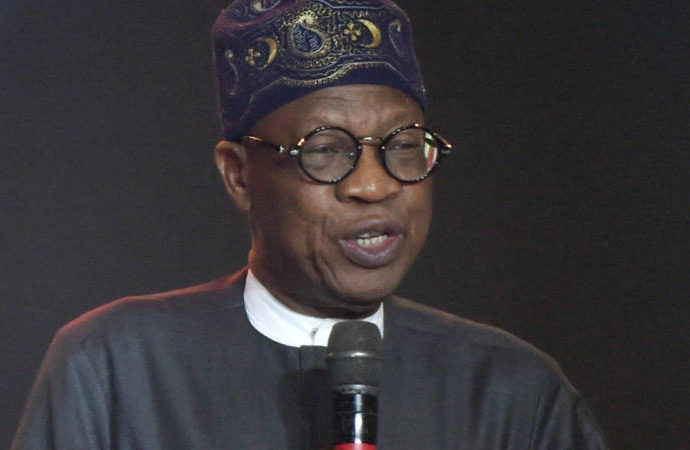By Our Reporter with agency report
Information and Culture Minister, Alhaji Lai Mohammed, has decried the dwindling ability of most Nigerian children to write and read in their mother tongues.
Speaking, on Monday, in Kaduna, at the 2017 edition of the Annual Round Table on Cultural Orientation (ARTCO), organised by National Institute for Cultural Orientation (NICO), in collaboration with the Federal Ministry of Information and Culture, Alhaji Mohammed said, to this end, there was urgent need to curtail the trend of indigenous language extinction.
To curtail the trend, the Minister said the language should go digital on various Internet platforms where youths and children are familiar with, so that they could begin to pick up their mother tongue from such electronically devices.
He however, commended NICO for its work in the promotion of Nigerian languages over the years, and particularly for working tirelessly to ensure that this programme became a reality.
He reiterated the commitment of the Administration of President Muhammadu Buhari to accord Nigeria culture its pride of place in developmental agenda, adding that, “We will leave no stone unturned to ensure that our cherished cultural legacies and values are transmitted from one generation to another”.
He further explained, “The importance of indigenous language to national development cannot be over-emphasized. Language is the soul of culture; it is an indispensable tool for the promotion and preservation of culture. We cannot be genuinely committed to the promotion of our culture without addressing the serious issue of language endangerment and extinction.”
“There is no gainsaying the fact that our indigenous languages are endangered and if urgent steps are not taken, they will go into extinction in no distant future.
“Situation reports show that there is a remarkable decline in the usage of our indigenous languages by our children and youths; many of them cannot read or write in their mother tongue.
“This is not surprising because, according to Nigerian writer Prof. Akachi Adimora-Ezigbo, indigenous languages have been labeled as “vernacular’’ or “garbage’’ and as such, most African children in primary and secondary schools are even punished for speaking their mother tongues. That should never be the case.
“It has been my desire since I assumed duties as Honourable Minister to convene a strategic stakeholders’ meeting to underscore the relevance of the indigenous language newspapers and to engineer a road map for their sustenance in the face of formidable challenges. This explains why one of my first assignments in office was to visit identifiable indigenous newspapers like Alaroye, Iroyin Owuro, Rariya, Aminiya and Leadership Hausa.
“The visits convinced me, more than ever, that indigenous language newspapers have a vital role to play in reviving the fortunes of our endangered languages, if their potentials are maximized.
“The way forward is to fashion out strategies to address the problem. We must take urgent steps to encourage parents to ensure that their children are taught our indigenous languages. The teaching and learning of Nigerian indigenous languages as contained in the National Policy in Education must be fully implemented. Various platforms, such as the indigenous language newspapers, which promote the use of indigenous languages, should be supported and sustained”, he added.

Leave a Reply